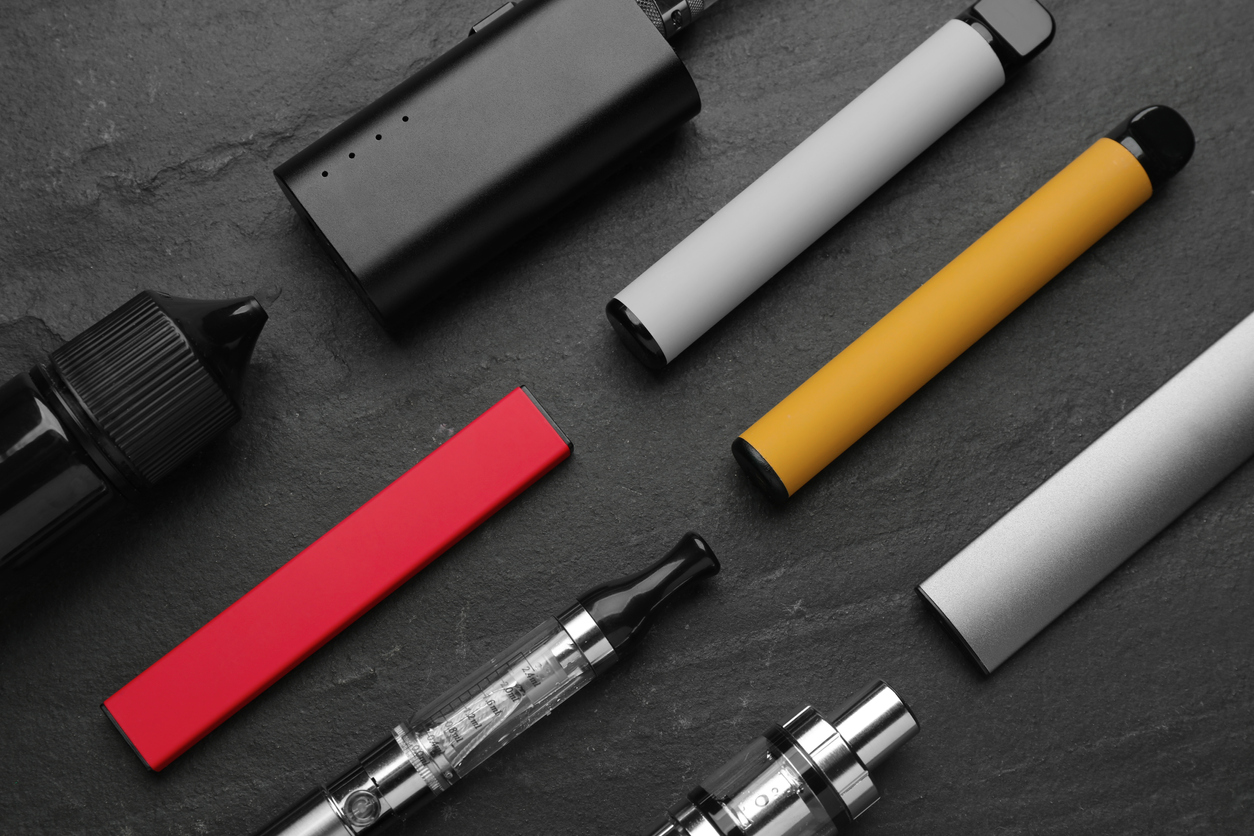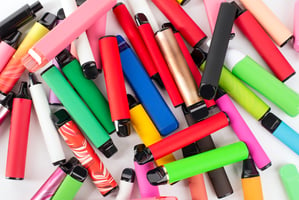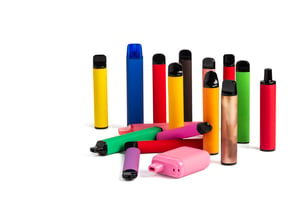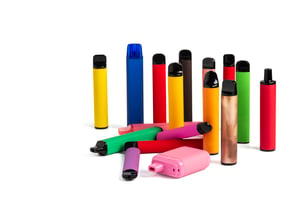Our CEO Chris Allen has written about the need to act now on vape compliance following recent scrutiny around non-compliant products. The article appeared in The Grocer's latest Guide to Tobacco,...
Do disposable vapes have a compliance problem?
Nicotine

Oct 17, 2023 | Published by Malcolm Saxton
Nicotine
Throughout 2023 many column inches have been devoted to scrutiny of vapes. The national newspapers have been naming certain brands for being non-compliant with the TRPR regulations in the UK.
In the past twelve months or so, we have performed tests on hundreds of vape products marketed in the UK supplied to us by manufacturers, distributors, or purchased from retailers. Significant numbers of products fail the standards defined in the TPD or TRPR.
What are the regulations for disposable vapes in the UK and EU?
- Disposable vapes must not contain more than 2ml of e-liquid.
- Disposable devices can contain no more than 20mg (2%) nicotine content.
- Packaging must be properly labeled with nicotine warnings and information.
- Disposable vapes must meet all other applicable product safety regulations.
What have we found in our testing?
The most common way for a product to fail is to be overfilled. The e-liquid naturally absorbs moisture from its surroundings even when it's inside its packaging inside the box. This means that a vape product that was compliant when it left the factory can become non-compliant by the time it arrives at a UK warehouse.
What has been less common is products that are over the maximum nicotine strength.
We have seen a few, but not nearly as many as those that were over-filled. Nicotine concentration falls for the same reason fill increases: moisture ingress. There can also be a loss due to the surface adsorption of nicotine to the device itself. There is a less obvious incentive to sell correctly labeled but over-strength vapes as there is no easy equivalent way of alerting consumers to this in the same way as can be done with claimed puff numbers.
For more information on e-cigarette regulatory non-compliance in the UK marketplace, download Malcolm's poster here.
What does this mean for manufacturers?
There are variations in manufacturing quality across the spectrum of vaping products. Brands that pay more attention to quality control and develop their product understanding through shelf life studies will have out-of-specification products far less often than those that don’t.
Tighter manufacturing controls produce products with less variability, and an understanding of the mechanisms of change within the e-liquid and device can be applied to the manufacturing to prevent products from creeping out of specification.
For more information on consumer vape shelf-life studies, read our blog here.
What does this mean for retailers?
Trading Standards teams throughout the UK are performing inspections and seizing products that they suspect to be non-compliant and bringing court action where appropriate.
The consequences of being caught selling illegal vapes can be severe. A retailer can face unlimited fines or up to two years in jail for selling non-compliant vape products.
By performing routine checks on incoming products and ensuring products are sourced from reliable distributors and wholesalers, they can minimize the risk of product confiscation.
How can I get support for this?
By performing routine checks on incoming products and ensuring products are sourced from reliable distributors and wholesalers, retailers can minimize the risk of product confiscation.
Broughton offers two standard packages of vape compliance testing.
One is designed to inspect new products and check for issues before large orders are placed. The other is aimed at ongoing compliance checks on selected batches of products already stocked and sold by the retailer. Undertaking this type of compliance testing gives retailers the peace of mind that they have implemented appropriate due diligence to ensure the products they are selling are compliant under UK regulations and that consumers are protected.
We can also offer bespoke consultancy and testing services.
For more information on Broughton Group's Vape Compliance Package, visit https://www.broughton-group.com/uk-eu-vape-compliance


